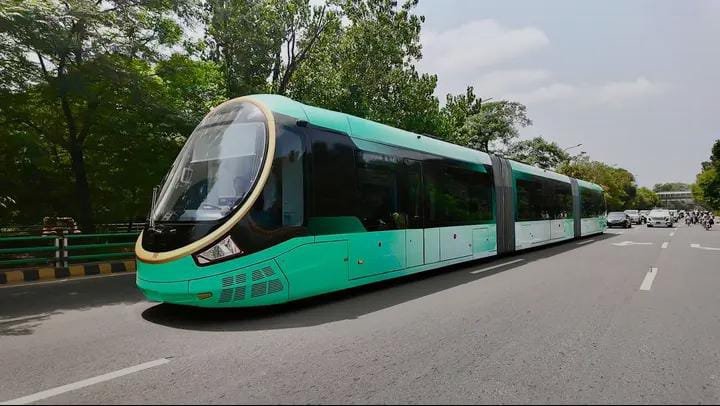CM Punjab Takes Test Ride on Pakistan’s First Urban Electric Train
In a major step toward sustainable urban transport, Punjab CM Punjab Takes Test Ride on Pakistan’s First Urban Electric Train symbolizing a new era of eco-friendly public transportation. The event took place in Lahore, a city long plagued by traffic congestion and air pollution. The urban electric train, part of a broader initiative to modernize public transport infrastructure, has been designed to offer a cleaner, faster, and more efficient commuting option for millions of city residents.
The test ride was carried out on the newly developed Lahore Electric Urban Train Line, a project that has been in the works for several years but gained momentum under the current government. With this launch, Pakistan joins the ranks of countries that are actively transitioning to electric mobility in their public transit systems.
The ceremony for the test ride was attended by senior government officials, representatives of the transportation sector, Chinese and local engineers, and members of the media. The CM boarded the train from a model station in Lahore and interacted with the onboard staff and engineers. During the journey, she observed various features of the train, including its modern safety systems, digital ticketing, onboard surveillance, and passenger comfort amenities.
Speaking on the occasion, Maryam Nawaz expressed her enthusiasm and pride, calling the project a “vision of a clean and green Punjab turned into reality.” She emphasized that this initiative is not only a significant achievement in terms of infrastructure but also a commitment to environmental preservation. The CM stated that the electric train would help reduce carbon emissions and fuel dependency while enhancing the quality of urban life.

The Lahore Electric Train is powered entirely by electricity, making it significantly more environment-friendly compared to traditional diesel-powered alternatives. It produces zero tailpipe emissions and is much quieter than conventional trains or buses. Additionally, it is expected to play a crucial role in reducing the city’s notorious smog levels, especially during the winter months.
According to government sources, the electric train will initially operate on a limited route as part of a pilot project. The pilot phase will allow for technical evaluations and adjustments before the full-scale rollout. Once operational, the service will run across major urban corridors, connecting densely populated areas with commercial and business hubs.
One of the most praised aspects of the train is its energy efficiency and state-of-the-art engineering, built in collaboration with Chinese engineers under a technology transfer framework. The coaches are equipped with regenerative braking systems, which help conserve energy during deceleration. The entire system is also integrated with smart city features, including real-time monitoring and data analytics for performance optimization.X
Maryam Nawaz also highlighted the social impact of the project. She said that the electric train would offer affordable transportation to low-income communities and reduce their daily commuting burden. With fares expected to be significantly lower than ride-hailing services and private transport costs, the train service could become a preferred mode of travel for office workers, students, and even small business operators.
She also stressed the importance of maintaining the service with international standards. “This is not just a transportation project; it is a step towards reshaping urban life in Punjab,” she remarked. “We are focusing on quality, safety, punctuality, and cleanliness—hallmarks of world-class urban transport systems.” READ NEXT https://elevenpakistan.com/trump-hikes-india-tariffs-to-50-russian-oil/
As the train reached its final stop on the test ride, the Chief Minister was briefed about the future expansion plans. These include extending the train network to other cities such as Rawalpindi, Faisalabad, and Multan. A feasibility study for these expansions is already underway, with international consultants expected to submit their reports within a few months.
The Punjab government is also exploring options for renewable energy sources to power the train, including solar and wind integration into the grid. This would further align the project with the global green energy goals and reduce long-term operational costs.
Public response to the announcement has been largely positive. Urban planners, environmental activists, and ordinary citizens have welcomed the initiative, calling it a much-needed solution to Lahore’s worsening air quality and traffic issues.
In conclusion, CM Maryam Nawaz’s test ride on the electric train is more than a ceremonial event—it is a bold signal that Punjab is serious about transforming its urban transport landscape. If successful, this project could pave the way for similar innovations across the country, steering Pakistan toward a cleaner, more efficient, and sustainable future.
READ NEXT



